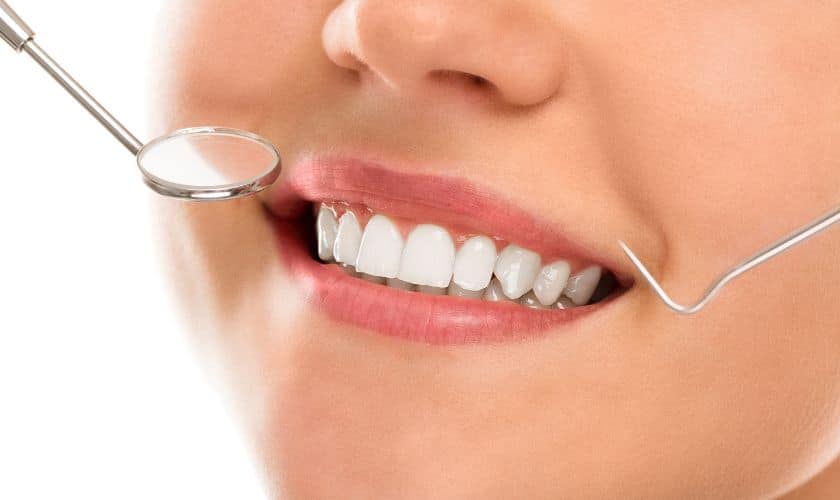
xr:d:DAFj5_W6Jf0:2,j:5428102165,t:23052507
Calcium is an essential building block of both bone tissue and tooth enamel – the hard outer protective layer which protects teeth against decay. Calcium also plays a vital role in the remineralization process used to repair damage caused by acid erosion or bacteria, helping restore any microscopic damage that has been done to them over time.
Assure that your child is getting enough calcium by feeding him/her dairy products, leafy greens (like kale and spinach), fortified foods or fish with edible bones – such as canned salmon and sardines.
Tooth Enamel
Tooth enamel is the white, protective covering found at the crown of a tooth. As one of the hardest tissues in your body, tooth enamel protects the dentin beneath and living tooth pulp from physical, thermal, and chemical forces that could otherwise erode their structure.
Enamel is composed of calcium and phosphate bound together by an hydroxyapatite crystal lattice and contains only about five percent organic material by weight. Furthermore, enamel contains other minerals such as magnesium, phosphorus and aluminum for further strengthening and adhesion properties.
Studies on enamel formation have demonstrated its dependence on pH and Ca2+ concentrations. H+ produced by RA cells via Na+/H+-ATPase decreases extracellular pH and promotes Ca2+ uptake into enamel matrix, stimulating its formation.
Ca2+ concentration measurements show that enamel fluid near ameloblasts has significantly higher millimolar concentration levels than serum, suggesting it represents a distinct microcompartment. This system is controlled by multiple proteins including AMELX and ENAM; mutations that alter their function lead to hypomineralized enamel phenotypes.
Bone Tissue
Calcium is one of the primary building blocks of teeth, helping form their hard outer shell known as enamel. Without sufficient calcium consumption, enamel becomes soft and more vulnerable to damage and decay.
At every stage in tooth development, calcium ions combine with phosphate and carbonate ions to form hydroxyapatite crystals that give teeth their strength and structure. A diet rich in calcium during childhood and adolescence ensures healthy, strong teeth resistant to decay.
Calcium-rich diets also contribute to healthy gum tissue by reducing the risk of gingivitis and periodontitis, as well as anchoring teeth securely into place, supporting jawbone health, supporting implants or prosthetics, neutralizing acids in the mouth, minimizing demineralization due to acidic foods or bacteria and neutralizing acids with calcium, thus helping ensure lasting dental hygiene and healthy smiles.
Gum Tissue
The gums (gums in British English) are pink tissues found in both upper and lower jaws that surround and support teeth. Healthy gums should be tight and firm to secure each tooth in its socket while protecting from harmful bacteria, plaque, and germs that could otherwise damage its enamel or root surface. They only bleed when teeth are being cleaned or injured.
The peri-dental epithelium, the outer layer of gums, consists of cells arranged in rosette-like structures around an early signaling center known as an Initiation Knot (IK). Chemical inhibition of IK signaling delays incisor formation while inhibiting proliferation of non-IK placodal cells at an incisor placode site.
Dental Follicle Progenitor Cells (DFC), isolated from human third molars, have been demonstrated to form compact calcified nodules when cultured and express the putative stem cell markers Nestin and Notch-1. When transplanted into immunocompromised mice however, DFC fail to form cementum or bone structures and must therefore be eliminated as potential donors for new dental follicles.
Overall Oral Health
Calcium may be best known for strengthening bones, but this mineral also plays a vital role in dental health at all stages. As children begin developing teeth, consuming plenty of calcium-rich food helps promote strong and healthy enamel formation while simultaneously protecting against gum disease by neutralizing harmful oral bacteria and encouraging the remineralization of enamel.
Calcium-rich saliva also plays an integral part in maintaining a healthy pH level in the mouth, helping prevent gum diseases such as gingivitis and periodontitis. Furthermore, calcium is crucial for maintaining strong jawbone density which supports both natural teeth as well as implants or prosthetics.
Diets that provide children with enough calcium, Vitamin D, and Phosphorus are key to supporting dental health. Dairy products are an excellent source of Calcium while leafy greens, almonds and fortified orange juice also boast plenty of these essential elements. A balanced diet combined with regular dental checkups will promote their long-term dental wellbeing.







